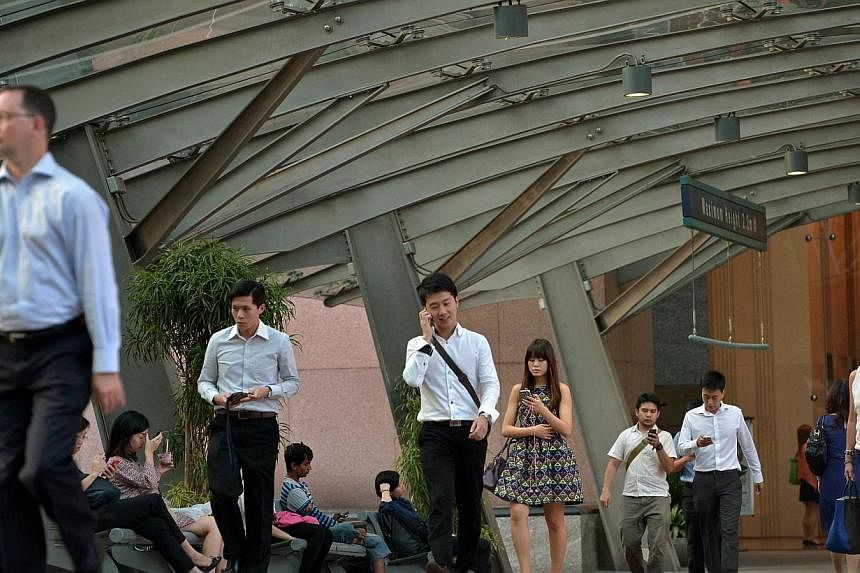SINGAPORE - Getting employers to adopt flexible work arrangements is a more pragmatic and feasible way to promote work-life harmony than reducing the official number of working hours, Manpower Minister Tan Chuan-Jin said on Wednesday .
Telecommuting or flexible working hours can allow employees "to find the right fit that suits their personal needs", he said in a written reply to veteran unionist Nominated MP K. Karthikeyan, who had asked whether the Manpower Ministry will reduce the official work hours to improve work-life balance and boost productivity.
Mr Tan added: "Many research studies have also shown that employees on flexible work arrangements are also more productive and engaged at the workplace."
He also listed various government efforts to promote such alternative arrangements.
Among them is the WorkPro Work-Life Grant, which was enhanced in July to encourage employers to implement and sustain flexible work arrangements.
In August, the NTUC, with funds provided by the Government, launched its U Flex Family-Friendly Grant, which aims to get employers to introduce Family Care Leave and Family Support schemes.
Next month, the Tripartite Committee on Work-Life Strategy will organise a one-week campaign to increase awareness of the benefits of flexible work arrangements. It will also issue an advisory to both employers and employees on ways to adopt such schemes, Mr Tan said.
A ministry survey last year shows 44 per cent of employers in Singapore offered at least one form of flexible work arrangement compared to 25 per cent in 2007, added Mr Tan.
Under the Employment Act, contractual working hours cannot be more than eight hours in a day or 44 hours in a week for employees. Those asked to work beyond these hours have to be paid extra.
But Mr Tan noted that some employees' work hours are not regulated by law as the nature of their work is not time-based. "As such, it is not practical for the Government to regulate their working hours," he said.


